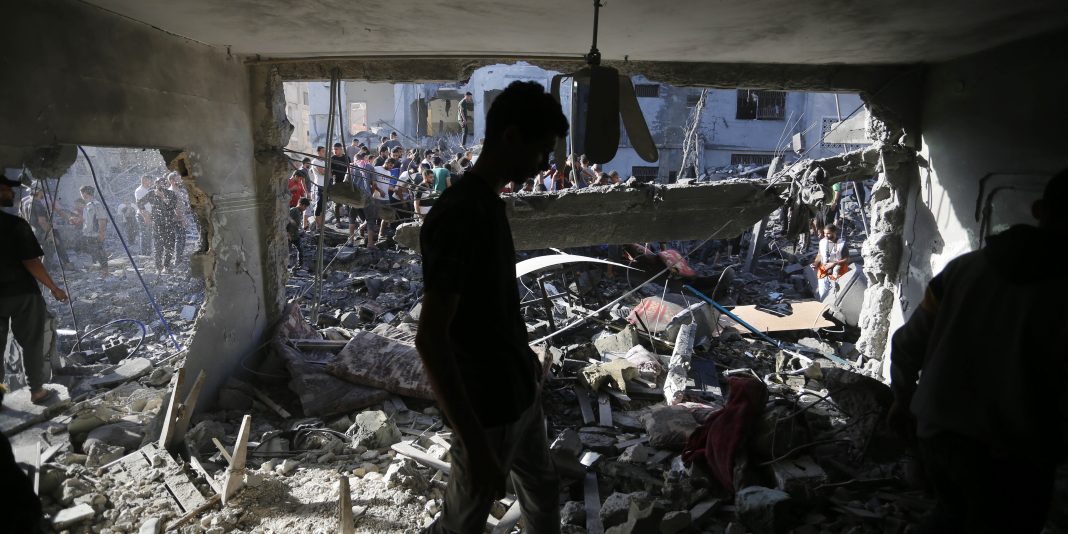Boycotts Against Israel Are Hurting Starbucks and McDonald’s Sales Worldwide
Introduction:
Both McDonald’s and Starbucks have recently reported declines in sales and profits, attributing the weak results to boycotts by supporters of Palestine during Israel’s war in Gaza. While the companies also mentioned other factors such as currency fluctuation and rising menu prices, the CEOs of both corporations specifically highlighted the conflict in Gaza as a significant issue affecting their businesses.
The Impact of Boycotts:
The Palestinian-led movement known as Boycott, Divestment, Sanctions (BDS) celebrated the dip in McDonald’s earnings on social media, claiming that their boycott efforts were effective. Although McDonald’s is not officially listed as a target of the BDS movement, they have endorsed it as a grassroots movement. The boycott gained momentum after McDonald’s Israeli franchises supported the Israeli military during its incursion on Gaza. The group accused McDonald’s of providing free meals to Israel’s forces and contributing to apartheid Israel’s war chest. The hashtag #BoycottMcDonalds was used to spread the message.
McDonald’s Challenges:
During a quarterly earnings call, McDonald’s CEO Chris Kempczinski acknowledged that several markets were negatively impacted by the war in the Middle East. The company had previously warned of low earnings in Middle Eastern and Southeast Asian countries with Muslim majorities. Kempczinski also noted a decline in sales in France, which he attributed to the country’s large Muslim population. This suggests that consumer sentiment and boycott efforts in these regions have affected McDonald’s sales.
Starbucks’ Troubles:
Starbucks CEO Laxman Narasimhan also mentioned the conflict in the company’s quarterly call, indirectly referring to boycott efforts in the Middle East, Southeast Asia, and parts of Europe. Narasimhan stated that the brand faced misperceptions in these regions, which had a significant impact on traffic and sales. Earlier this year, Starbucks Workers United, a union representing thousands of Starbucks employees, expressed solidarity with Palestine in a tweet. Starbucks responded by suing the union, claiming that it damaged the company’s reputation and misled consumers. This legal action further fueled calls to boycott Starbucks.
The Ripple Effect:
The boycotts against McDonald’s and Starbucks started after their respective Israeli franchisees expressed support for the Israeli military on social media. The fast-food giant’s Israeli franchisee announced that it had donated thousands of meals to IDF units, the police, hospitals, and residents around Gaza. This sparked outrage and led to calls for boycotts. McDonald’s CEO Kempczinski defended his company in a LinkedIn post, blaming the decline in international stores on the war and associated misinformation. However, the boycotts spread to Muslim-majority countries like Pakistan and Kuwait, prompting the Pakistani franchisee to distance itself from the issue. Eventually, McDonald’s was forced to repurchase its 225 restaurants in Israel due to plummeting sales in the Middle East.
Conclusion:
The boycotts by supporters of Palestine have had a significant impact on the sales and profits of McDonald’s and Starbucks. While the companies attribute the decline to various factors, including currency fluctuation and rising menu prices, the CEOs acknowledge the role of the conflict in Gaza. The BDS movement has successfully mobilized supporters to boycott McDonald’s and Starbucks, leading to negative consequences for both corporations. The ripple effect of these boycotts has spread to different regions, affecting sales in Muslim-majority countries and prompting franchisees to distance themselves from the issue. The ongoing conflict and associated misinformation continue to pose challenges for these global brands.


